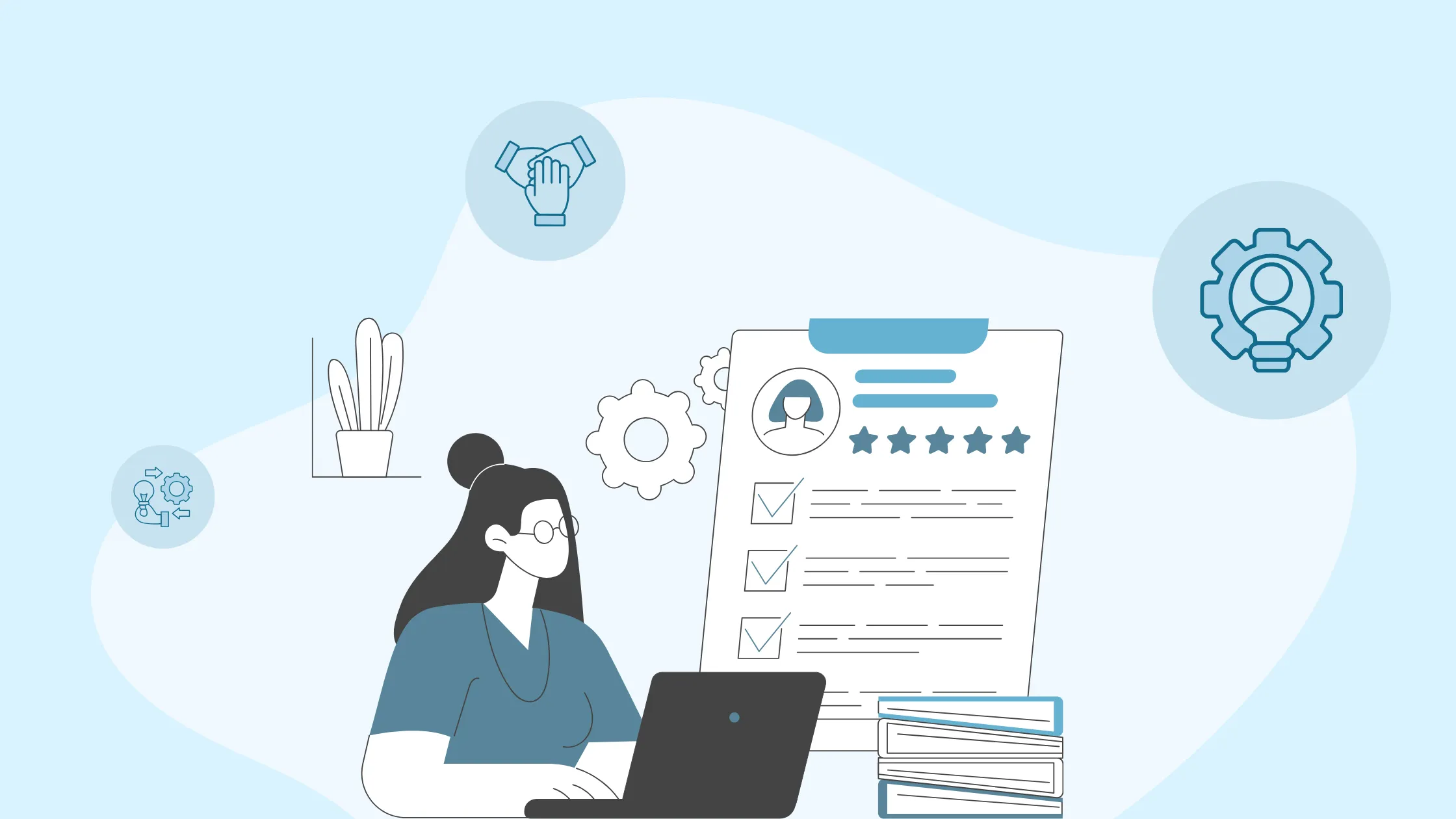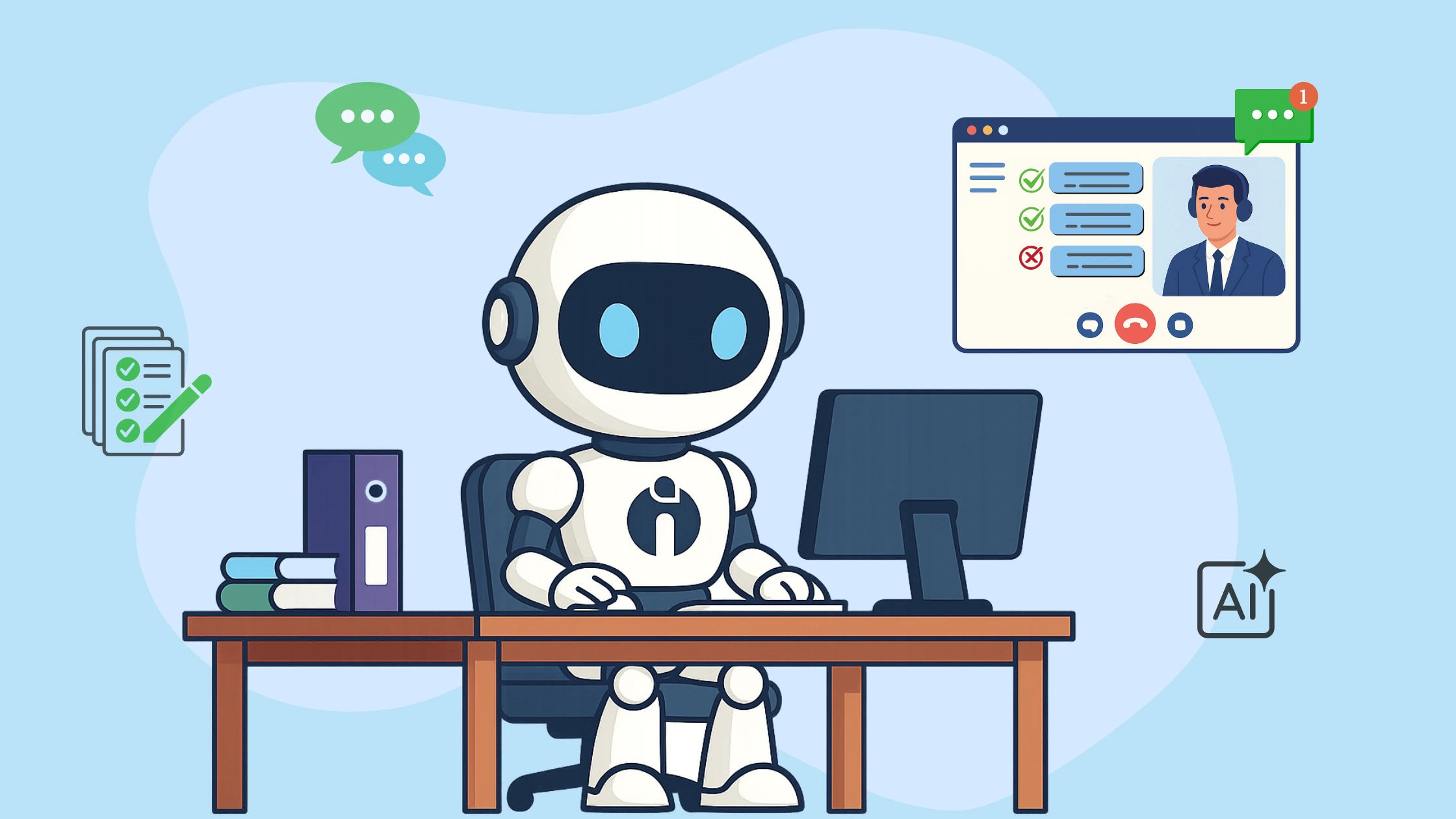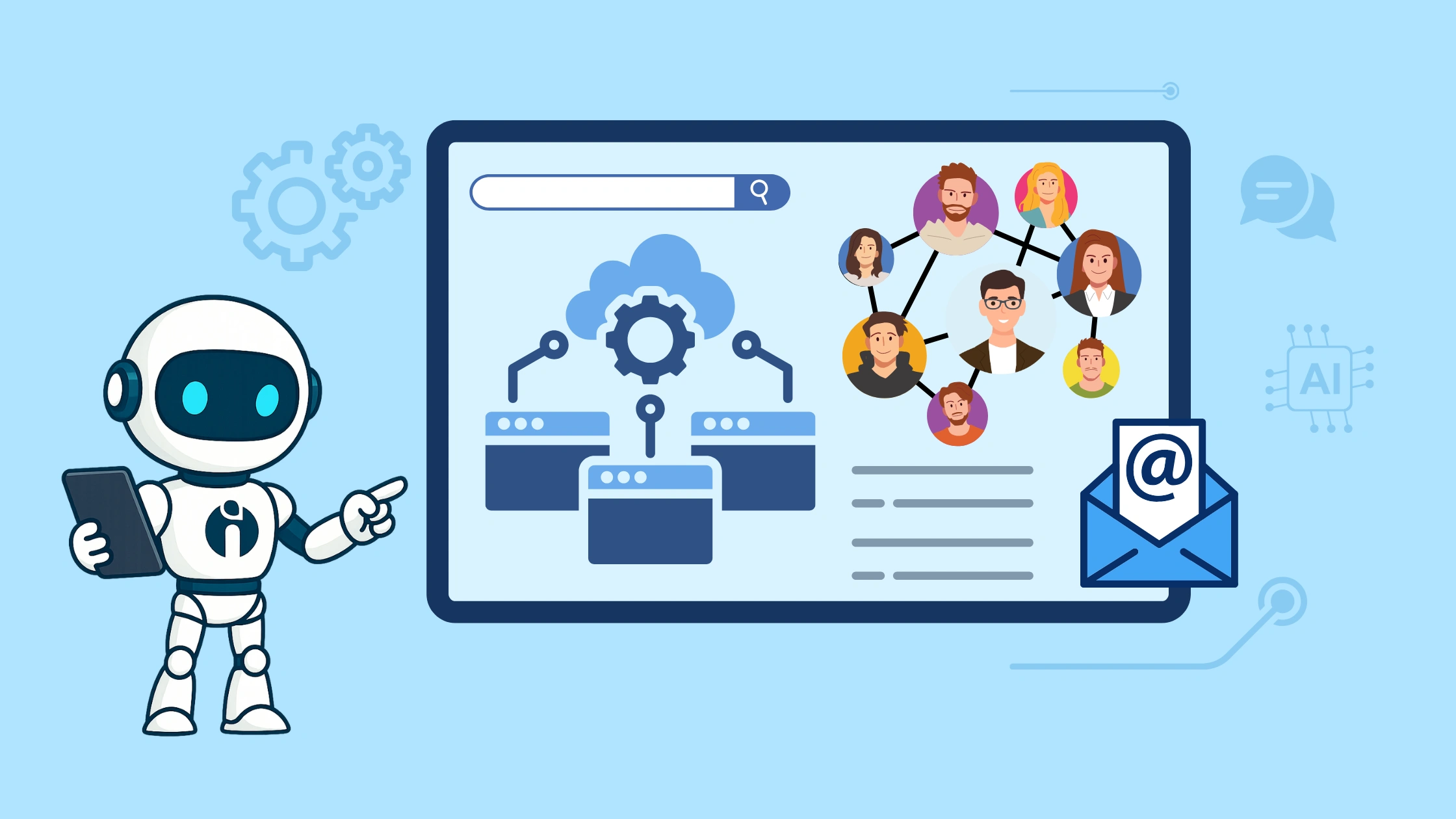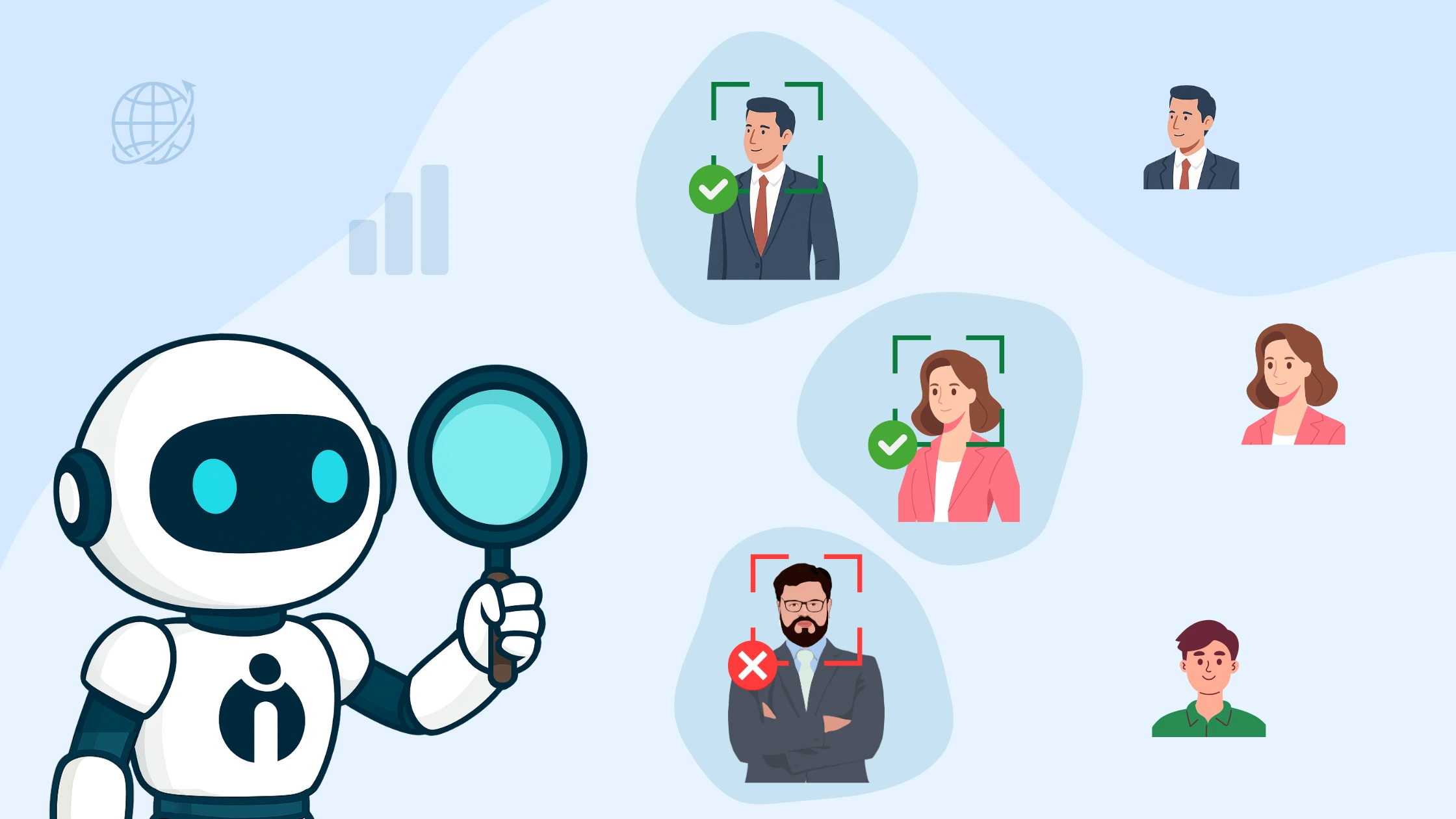TL;DR
- Talent assessment tools provide objective, data-driven insights to improve hiring accuracy and reduce bias.
- Align assessments to specific job roles and integrate with applicant tracking systems to streamline screening and shortlisting.
- Key features include cognitive tests, behavioural analysis, job fit measurement, automation, and integration capabilities.
- Various tools, including AI-driven software, help predict candidate success and enhance recruitment efficiency.
Talent Assessment Tools At a Glance
Leveraging a talent assessment tool enables you to make hiring more objective and data-driven, thereby reducing bias and enhancing the accuracy of your candidate evaluations. By integrating these tools, you gain clear insights into candidates’ skills, personality traits, and potential that help you match the right people to the right roles.
Using talent assessment tools can streamline your hiring and make it more efficient and aligned with your organisation’s needs. This not only speeds up the recruitment process but also enhances the quality of your hires.
What Are the Talent Assessment Tools?
Talent assessment tools provide precise ways to evaluate candidates' skills, behaviours, and potential for specific roles. They offer structured, data-driven insights, allowing you to make informed hiring and development decisions.
A LinkedIn report reveals that approximately 57% of recruiters incorporate soft-skill assessments into their interview processes. Knowing the features, the methods they employ, and the prevailing trends can help you select and use these tools effectively.
Why Talent Assessment Tools?
You can increase hiring accuracy and efficiency by carefully aligning assessments to the specific requirements of each role. Using technology to automate screening and shortlisting saves time and ensures objective evaluation.
Mapping Assessments to Job Roles
You can begin by identifying the key skills and behaviours required for each position. This helps you select assessment types such as cognitive ability tests, personality assessments, or work simulations that directly measure relevant attributes.
Create a clear matrix linking job roles with corresponding assessment methods.
For example:
| Job Role | Assessment Type | Key Focus |
| Software Developer | Technical skills test | Coding ability |
| Sales Executive | Personality & situational | Communication, judgement |
| Customer Service | Behavioural assessment | Empathy, problem-solving |
Ensure assessments capture both technical expertise and cultural fit. This targeted approach supports consistent comparisons between candidates and reduces bias.
Automating Screening and Shortlisting
Integration of talent assessment software with an applicant tracking system (ATS) enables automatic candidate scoring based on predefined benchmarks. This streamlines initial screening by filtering out those who do not meet the minimum criteria.
Set up workflows where completed assessments trigger automated shortlisting alerts. Your hiring team can then focus only on candidates who pass key thresholds, accelerating decision-making.
What Are the Key Features of Talent Assessment Tools?
Talent assessment software typically include skill evaluation, cognitive ability tests, and behavioural analysis. They measure aptitude, personality traits, and job fit, ensuring that candidates align with your organisational needs. Many tools integrate analytics dashboards to visualise candidate performance clearly.
Key features of Talent Assessment Tools may include:
-
Skill Evaluation & Cognitive Tests - Assess candidates' technical skills, problem-solving ability, and general aptitude.
-
Behavioural & Personality Analysis - Evaluate personality traits and behavioural tendencies to ensure cultural and role fit.
-
Job Fit Measurement - Aligns candidate strengths with your specific organisational needs.
-
Analytics Dashboards - Visualise candidate performance clearly through intuitive, data-driven dashboards.
-
Automation Capabilities - Speeds up initial screening and highlights top candidates automatically.
-
Customisable Assessments - Tailor tests to match the requirements of specific roles for better relevance.
-
Integration with Recruitment Tools - Seamlessly works with applicant tracking systems (ATS) to streamline the hiring process.
Candidate assessment is critical. According to a study by SHRM, 78% of HR professionals report that using skills assessments has improved the quality of their organisation’s hires. Some software also offers customisable assessments tailored to specific roles, improving relevance.
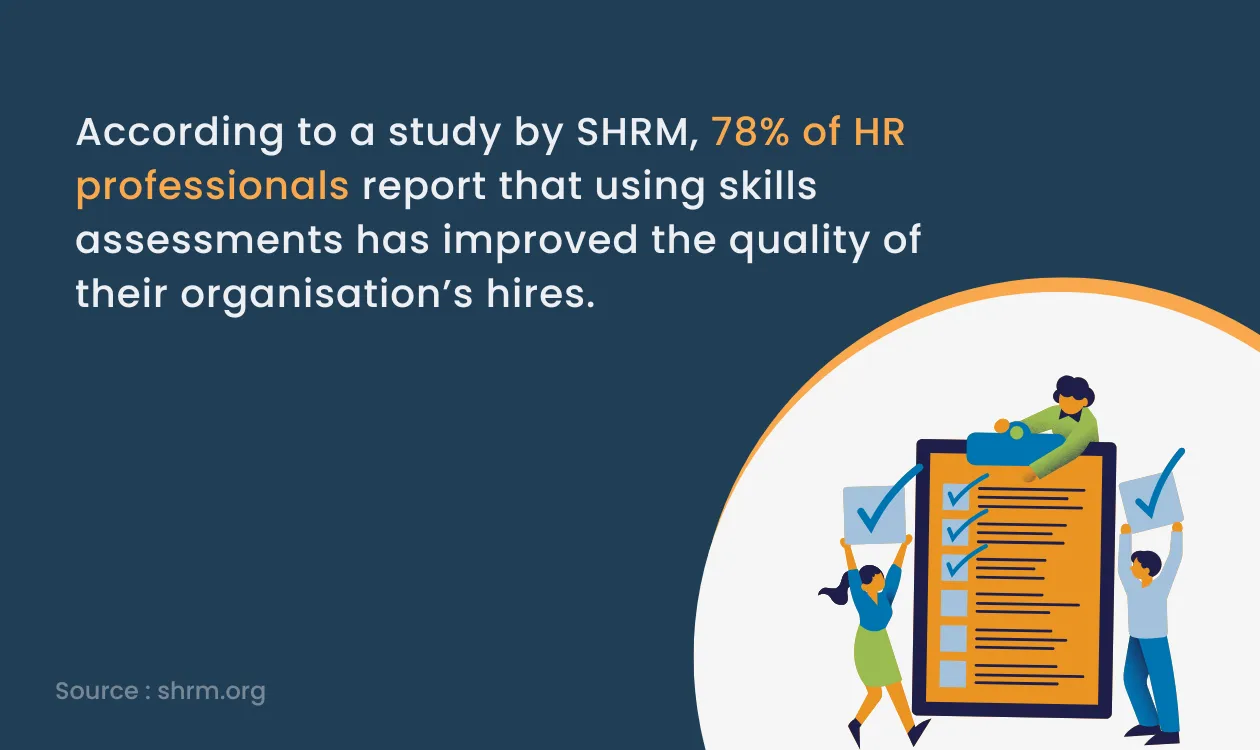
How To Do a Talent Assessment Using Tools?
Some tools also use situational judgment tests to see how candidates respond to realistic work scenarios. This method assesses decision-making and interpersonal skills.
You will encounter various assessment types depending on what you want to measure. Some of them as as listed below:
- Measure reasoning, memory, and problem-solving skills
- It’s Ideal for roles requiring strong analytical thinking
-
Situational Judgement Tests (SJTs)
- Present candidates with realistic work scenarios
- Assess decision-making, interpersonal, and conflict-resolution skills
-
Multi-Method Assessments
- Combine cognitive, behavioural, and skill-based tests
- Provide a well-rounded view of candidate suitability
-
AI-Driven Assessment Software
- Analyse large volumes of candidate data quickly
- Enhance accuracy and reduce unconscious bias
- Detect patterns often overlooked by human reviewers
Modern talent assessment and ATS tools increasingly use Artificial Intelligence (AI) to enhance accuracy and reduce bias. AI-driven tools analyse large candidate pools swiftly and can identify subtle patterns that human reviewers might miss.
What Are the Strategic Benefits of Leveraging Assessment Tools?
Using talent assessment tools can significantly improve how you identify and select candidates. They provide clear, data-driven insights that enhance the quality of hires, reduce unconscious bias, and make your recruitment process more efficient and targeted.
Enhancing Candidate Quality
Assessment software offers objective measures of candidate skills, knowledge, and potential. By evaluating candidates on relevant competencies, you ensure that those selected meet your role requirements precisely.
This precision reduces the risk of bad hires and improves employee fit within your organisation’s culture and goals. You gain a clearer understanding of each candidate's strengths and development areas before making hiring decisions.
Reducing Hiring Bias
Structured assessments help minimise unconscious bias by focusing on factual data rather than subjective opinions. You evaluate candidates on standardised criteria rather than gut feelings or assumptions.
By standardising evaluations, you also reduce variability between different hiring managers’ opinions, creating a more transparent and defensible recruitment process.
Improve Candidate Experience
A positive candidate experience hinges on clear communication and fairness during the hiring process. Transparent procedures and timely, constructive feedback create a respectful environment where candidates feel valued and informed at every stage.
You can enhance fairness by using objective talent assessment tools that minimise human bias. These tools evaluate candidates against consistent criteria, ensuring every applicant is measured on the same standards.
Offering feedback is essential to improving candidate experience. When you provide specific, actionable insights based on assessment results, candidates understand their strengths and areas for growth.
Making Data-Driven Decisions
Accurately interpreting talent assessment data helps you pinpoint candidate strengths and weaknesses, ensuring better hiring fits. Using analytics systematically allows you to refine future recruitment by identifying trends and improving selection criteria.
You can focus on clear, objective metrics such as cognitive scores, skills ratings, and behavioural indicators. Look for patterns that align with your role requirements and company values.
Visual tools such as interview scorecards or dashboards can help you quickly identify outliers or consistent top performers. Keep qualitative feedback from interviewers alongside quantitative data to get a comprehensive view.
Key elements you can track:
-
Cognitive and technical skill scores
-
Personality traits relevant to job success
-
Potential red flags or inconsistencies
Use These Tools for Future Hires
By compiling and analysing assessment data across multiple hires, you can recognise which traits predict success in your organisation. This enables progressive refinement of your talent criteria and recruitment strategies.
Regularly update your assessment framework as you gather new outcomes, aligning with evolving business goals or role changes. Recruitment Analytics tools that automate report generation and trend analysis will save you time and improve decision consistency.
Focus areas to enhance talent acquisition:
-
Identifying high-impact competencies
-
Reducing hiring bias with objective data
-
Tracking the correlation of assessment scores and job performance
What Kind Of Implementation Challenges May Occur?
Implementing a talent assessment tool involves overcoming specific obstacles related to organisational dynamics and data management. You need to prepare your team to accept new processes and ensure candidates’ information remains secure throughout.
You also must prioritise data protection when implementing talent assessments. These tools collect sensitive candidate information, so compliance with GDPR and other data privacy laws is critical. Define clear policies on data collection, storage, and access.
Inform candidates how their data will be used and obtain explicit consent. This transparency builds trust and reduces legal risk.
Measuring the Impact on Recruitment Outcomes
To understand how a talent assessment tool reshapes your hiring, focus on tracking key performance indicators. This includes assessing candidate quality and the efficiency of your recruitment cycle. These factors directly affect the quality of hires and the costs involved in filling roles.
Consider setting benchmarks from past hires to compare quality improvements. Regularly reviewing quality indicators ensures you focus on candidates who truly match your needs, not just those who pass initial screening.
Shorter time-to-fill lowers hiring costs, which can include advertising, recruiter fees, and lost productivity. You should track these savings alongside recruitment expenses to build a clear picture of the financial impact. To get a better handle on these expenses and improve visibility across hiring activities, implementing effective expense management practices allows talent teams to categorize spend, monitor recruiter travel or tool subscriptions, and connect costs directly to hiring outcomes.
Top Talent Assessment Tools to Check Out in 2026
Using the right talent assessment software can help you reduce bias, improve hiring accuracy, and save time. These platforms offer various features, from AI-driven evaluations to skill testing, enabling you to make informed decisions based on data rather than intuition.
Each tool specialises in different aspects of assessment, such as cognitive ability, personality fit, or technical skills. Understanding these strengths will help you choose one that aligns with your hiring goals and team needs.
1. TalentSorter
TalentSorter uses a combination of behavioural and cognitive assessments to provide a clear picture of candidates' job fit. You get a detailed profile that highlights strengths and potential challenges, helping you match candidates to specific roles.
The platform also measures cultural fit, which can improve retention rates. TalentSorter’s predictive analytics offer actionable insights to reduce turnover and hiring mistakes.
It integrates easily with popular ATS systems that streamline your workflow. The user interface is straightforward, making it accessible for both recruiters and hiring managers.
2. Outmatch
Outmatch offers a broad talent assessment suite, including video interviewing, personality testing, and skills assessments. Its AI-based scoring system can rank candidates objectively, reducing unconscious bias in the recruitment process.
The tool supports structured interviews, allowing you to standardise your evaluation criteria. This leads to fairer comparisons and better hiring decisions.
Outmatch’s reporting features offer detailed candidate insights at a glance. It’s especially useful if you need a comprehensive solution to assess multiple candidate attributes in one place.
3. AssessFirst
AssessFirst prioritises predictive hiring by evaluating candidates' soft skills, motivation, and potential for growth. Its assessments focus on long-term success and team dynamics, helping you build a workforce aligned with your company culture.
You receive actionable data on candidates' emotional intelligence and work personality. This is beneficial for roles where interpersonal skills are critical.
The platform uses machine learning models to match candidates with roles where they are most likely to succeed. This reduces costly hiring errors over time.
4. iMocha
iMocha specialises in technical skill assessments for IT and engineering roles. It offers a large library of coding tests, simulations, and role-specific challenges to evaluate practical skills thoroughly.
You can tailor tests to specific technologies and levels of expertise, ensuring candidates meet your exact technical requirements. Its auto-evaluation system saves time by instantly grading coding tests.
iMocha also provides comprehensive analytics, showing skill gaps and comparative performance. This helps you focus training efforts or make quick hiring decisions with confidence.
5. WizeHire
WizeHire is designed for small to medium-sized businesses looking to simplify applicant screening. It combines job description creation with automated candidate scoring based on tailored assessments.
You get customised scorecards that highlight the best matches for your specific job roles. The tool emphasises ease of use, allowing non-HR experts to handle hiring efficiently.
WizeHire also offers interview guidance, helping you focus on relevant questions based on each candidate’s assessment. This reduces guesswork during interviews and improves overall hiring quality.
6. Thrive
Thrive provides predictive hiring analytics by combining personality tests with cognitive assessments. Its strength lies in helping you identify candidates who are likely to thrive in your company’s unique environment.
The platform highlights potential leadership qualities and teamwork abilities. You can also benchmark candidates against high performers already on your team.
Thrive focuses on reducing turnover by enhancing the quality of your hiring decisions. It offers insightful reports that are easy to interpret and share across your hiring team.
7. HireVue
HireVue integrates video interviewing with AI-driven analysis of candidate responses. It evaluates verbal and non-verbal cues to provide a deeper understanding of candidates beyond their resumes.
You can standardise interviews at scale, which is useful for high-volume hiring. The platform also offers coding tests and psychometric assessments integrated into a single process.
Its analytics dashboard shows strengths and weaknesses, supporting objective decision-making. HireVue is ideal if you want to leverage video technology while maintaining a structured, data-driven hiring approach.
Conclusion
Talent assessment tools offer a powerful way to modernise and improve recruitment.
By providing objective, data-driven insights into candidates’ skills, behaviours, and potential, these tools help reduce bias, improve cultural fit, and retain the candidates for a long time.
Adopting and continuously refining these tools positions your organisation for more consistent, fair, and strategic talent acquisition. The right talent assessment tools lead to stronger teams, better performance, and long-term recruitment success.
FAQs - Frequently Asked Questions
1. What are talent assessment tools, and how do they work?
Talent assessment tools are digital software that evaluate a candidate’s skills, personality, and fit using tests to provide data-driven hiring insights.
2. How do these talent assessment software help reduce bias in hiring?
Talent assessment software applies the same objective criteria to all candidates, reducing subjective judgment and promoting fairer hiring.
3. Can talent assessment tools integrate with my existing hiring systems?
Yes, most modern talent assessment software can integrate with applicant tracking systems (ATS), HR platforms, and onboarding tools.
4. What types of roles benefit most from using talent assessments?
Talent assessment software are beneficial for a wide range of roles, from technical positions like software developers (using coding and problem-solving tests) to customer-facing or leadership roles (using personality and situational judgment assessments).
5. How do I know if the talent assessment tool is improving my recruitment outcomes?
You can measure the impact of your assessment tool by tracking key recruitment metrics such as quality of hire, time-to-fill, cost-per-hire, and new hire retention rates.







